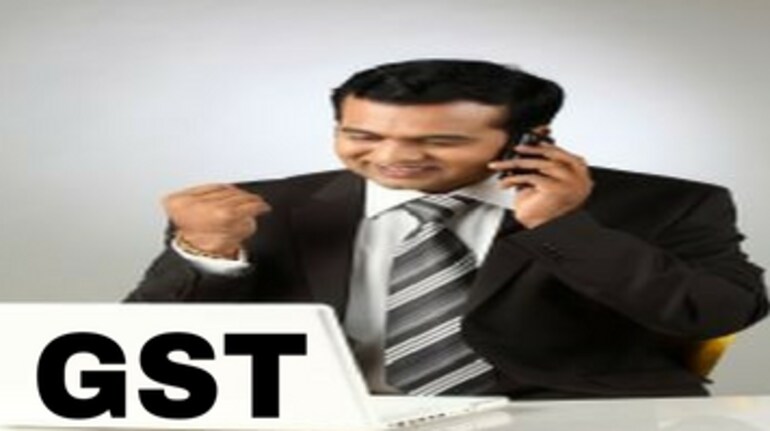
Mahesh JaisingBMR & Associates LLPThe Goods and Services Tax is touted to be the most significant reform since Independence for what is now Asia’s third largest economy. And with the passage of the GST Bill by the Upper House of the Parliament on Wednesday last week, GST seems to have finally arrived. As the Finance Minister Mr Arun Jaitley put it after a fierce 7 hour debate “it is a great day for Indian democracy”. The IT/ ITeS sector which has heralded the entry of India as a global economic superpower has hitherto had to deal with several ambiguities on the indirect tax front including but not limited to dual taxation on some of its revenues. Here are some of the key impact areas for the IT/ ITeS sector:• Taxation of electronic software: The taxation of software has its own share of litigation both under the direct and indirect tax laws. Under the existing tax regime, software has been subjected to dual taxation, ie, service tax and VAT when sold electronically. Under the GST regime, the Model Law has defined the term “services” to include tangible property and “goods” to exclude intangibles. Accordingly, software downloaded electronically should qualify as a “service”, whereas software on a media is treated as goods and gets taxed accordingly. However, a debate that continues is whether the taxation of a product can be differentiated based on the medium through which it is sold. • SEZ/ STP related exemptions: While the commerce ministry has been batting for continued exemptions for both SEZ and STP units (under indirect tax laws), the finance ministry seems to be preferring a refund mode rather than an upfront exemption. Specifically, it is hoped that exemptions from payment of taxes on procurement of goods and services may be continued only for SEZ units under the GST regime. Given the same, units operating under the STP scheme would need to reevaluate in terms of continuing to export IT/ ITeS from STP units or explore various other possible ways.• Treatment of pan-India contracts: The draft rules provide scope for interpretation on jurisdiction of taxation of pan-India contracts, which are currently billed out centrally from one single location will span out. To put this in perspective, service providers may now need to determine if registration is to be obtained or billing to be undertaken in every State where the supply of services is made from. It is easier said than done to implement the solution of bifurcating the consideration into each state, apportionment of credits, etc as this is likely to result into avoidable litigation. An antithesis of this situation would be the same when an IT/ ITeS service provider procuring services for his branches across several States requiring to issue separate purchase orders to his vendor so the appropriate GST is charged. • Increased number of refund claims: Currently, an IT/ ITeS services exporter is required to file a consolidated/ single refund claim with respect to input services that he has procured across various locations. A fallout of the requirement of de-centralised operations in terms of invoicing and procurements could result in increase in the number of refund claims and the quantum as well, given the expected increased rate of taxes on services and exemption for STP units currently available for capital goods being taken away. Another sector which is impacted is the telecom sector which is today India’s largest contributor of service tax. Telecom sector has been one of the first few categories of service on which service tax was levied way back in 1994. In a way, the authorities are well versed with the nitty-gritties involved in telecom sector and should have streamlined various issues in taxing the telecom sector. With the introduction of GST, here are the key impact areas for the Telecom sector:• Increase in rate of tax: Currently, a customer pays service tax of 15% (including cesses) on his telephone/ mobile bills. While an RNR of 18% is indicated, there is a possibility of a higher rate of GST as well. In any case, unless a lower rate of GST is prescribed for telecommunication services to consumers, the increased rate will impact the common man. • Restriction on credits: The industry expects that the Government should not restrict availment of credits as there are huge investments made by telecom companies in terms of inputs/ capital goods/ input services used in providing such services, ie, primarily around set up of towers. The draft rules do not clearly provide for credit eligibility and restrictions under the current regime around inputs for “immovable property” not being available as credit continues. While industry believes the towers ought not to be treated as “immovable property”, industry expects the credit rules be modified to specifically allow for these credits. Any ineligibility would lead to a cost build up in the system, thereby resulting in cascading of taxes, in which case the objective of introduction of GST will be lost. With the task of implementation at its doorstep, the government now faces a fine-balancing act of reaching a consensus with States while ironing out some of the concerns of industry players. Authored is Partner, BMR & Associates LLP.Madhava Yathigiri, Director and Sangita Prakash, Assistant Manager at BMR & Associates LLP contributed to this article.Views expressed are personal
Discover the latest business news, Sensex, and Nifty updates. Obtain Personal Finance insights, tax queries, and expert opinions on Moneycontrol or download the Moneycontrol App to stay updated!